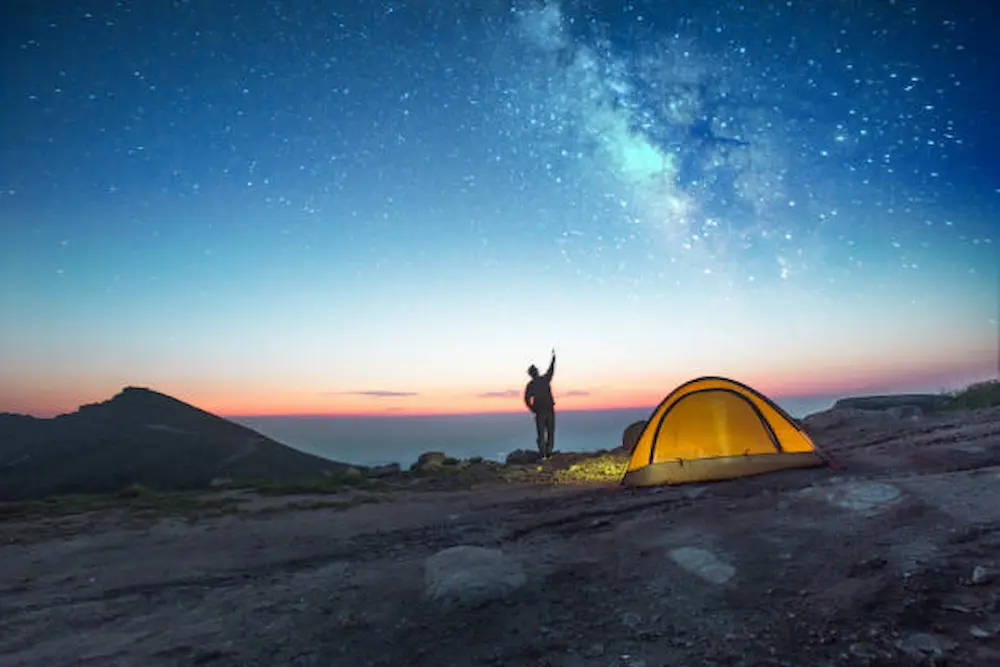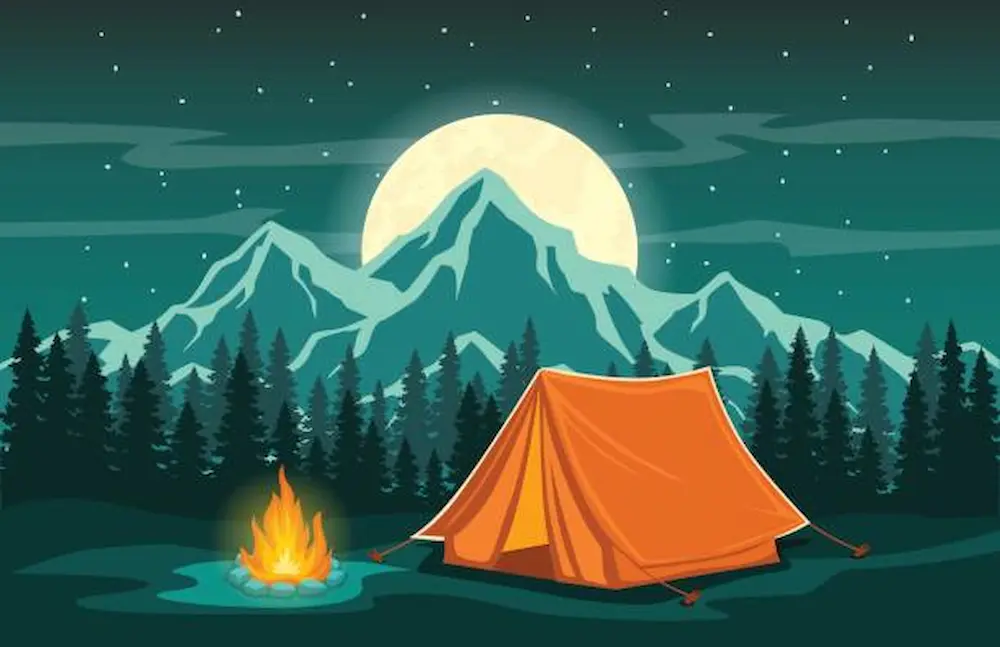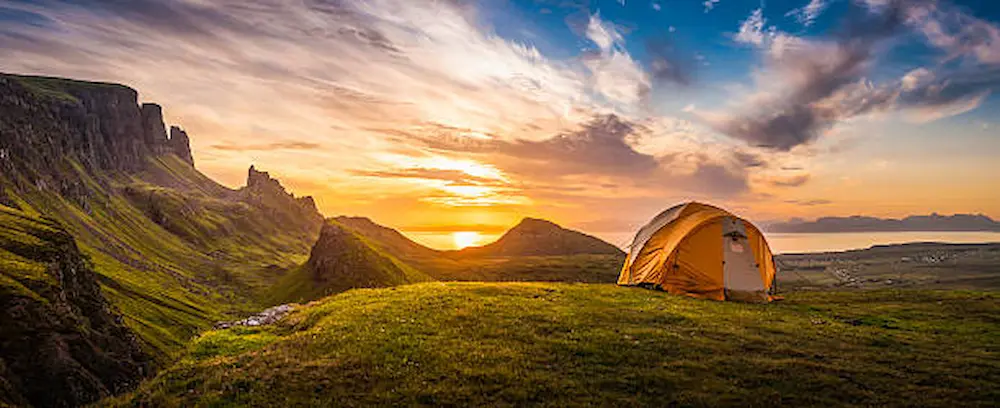Mountain Camping
Mountain camping offers an unparalleled sense of adventure and connection with nature. The crisp mountain air, breathtaking vistas, and sense of solitude draw outdoor enthusiasts seeking a break from the hustle and bustle of daily life. However, to ensure a safe and enjoyable experience, proper preparation and knowledge are essential.
Choosing the Right Gear
Before embarking on a mountain camping adventure, it’s crucial to assemble the right gear. Proper equipment can mean the difference between a comfortable trip and a challenging ordeal. Pay close attention to:
- Clothing and Footwear: Dress in layers to regulate body temperature, and choose sturdy, waterproof footwear to navigate varied terrain.
- Shelter and Sleeping Gear: Invest in a quality tent designed to withstand mountain conditions, along with a warm sleeping bag and insulated sleeping pad.
- Cooking and Eating Utensils: Lightweight, compact cookware and utensils are essential for preparing meals efficiently.
Planning Your Trip
Thorough planning is key to a successful mountain camping trip. Research the area you plan to visit, including:
- Understanding the Terrain and Weather: Familiarize yourself with the local geography and weather patterns to anticipate potential challenges.
- Obtaining Permits and Permissions: Some mountain regions require permits for camping or hiking. Ensure you have the necessary documentation before setting out.

Safety Precautions
Mountain environments can be unpredictable, so it’s essential to prioritize safety. Pack navigation tools such as maps and compasses, and equip yourself with:
- First Aid Kit Essentials: Include supplies for treating common injuries such as blisters, cuts, and sprains.
- Wildlife Awareness: Educate yourself on local wildlife species and proper protocols for encounters.
Leave No Trace Principles
Responsible camping practices are vital for preserving the natural beauty of mountain environments. Adhere to Leave No Trace principles by:
- Minimizing Environmental Impact: Practice proper waste disposal and avoid disturbing vegetation or wildlife habitats.
- Respecting Wildlife: Keep a safe distance from wildlife and refrain from feeding or approaching animals.
Campsite Setup and Etiquette
When selecting a campsite, choose a location that minimizes impact on the environment and respects the experience of others:
- Setting Up Camp Responsibly: Pitch tents on durable surfaces away from fragile vegetation, and avoid blocking trails or water sources.
- Noise and Respect for Others: Maintain a quiet and respectful atmosphere, especially during early morning and late evening hours.
Food Storage
Proper food storage is essential for preventing wildlife encounters, particularly with bears:
- Bear Safety: Store food and scented items in bear-proof containers or hang them from a high branch away from camp.
- Proper Food Storage Techniques: Seal food in airtight containers and dispose of trash in designated bins.
Emergency Preparedness
Despite careful planning, emergencies can still arise in mountain environments. Prepare for unforeseen circumstances by:
- Creating a Safety Plan: Establish communication protocols and emergency contact information before departing.
- Emergency Communication Devices: Carry a charged cellphone or satellite communicator for summoning help if needed.
Physical and Mental Preparation
Mountain camping can be physically demanding, so it’s essential to prepare your body and mind:
- Fitness and Endurance Training: Build strength and stamina through regular exercise and hiking practice.
- Mental Resilience: Prepare for the unexpected by maintaining a positive attitude and staying adaptable in challenging situations.
Enjoying the Experience
Amidst the challenges and preparations, don’t forget to savor the beauty and tranquility of the mountain landscape:
- Disconnecting from Technology: Take a break from screens and distractions to fully immerse yourself in nature’s wonders.
- Embracing Nature’s Beauty: Pause to appreciate stunning sunsets, starlit skies, and the simple joys of mountain life.
Conclusion
By following these essential tips for safe and enjoyable mountain camping adventures, you can embark on your next outdoor excursion with confidence. Remember to prioritize safety, respect the environment, and embrace the unique experiences that mountain camping offers.

FAQs
- Q: Should I bring a portable stove or rely on campfires for cooking?
- A: While campfires can be enjoyable, portable stoves are more efficient, especially in areas where fire restrictions may apply.
- Q: What should I do if I encounter a bear while camping?
- A: Remain calm, back away slowly, and avoid making direct eye contact. Never run from a bear, and if attacked, fight back vigorously.
- Q: Can I drink water directly from mountain streams?
- A: It’s best to treat all water obtained from natural sources to prevent waterborne illnesses. Boiling, filtering, or using water purification tablets are recommended methods.
- Q: How can I prevent altitude sickness while camping in the mountains?
- A: Stay hydrated, pace yourself, and allow time for acclimatization when ascending to higher elevations. Avoid alcohol and caffeine, which can exacerbate symptoms.
- Q: What should I do if I get lost while hiking in the mountains?
- A: Stay calm and assess your surroundings. If possible, retrace your steps to a known location. If unsure of your whereabouts, signal for help using a whistle or other audible device.




